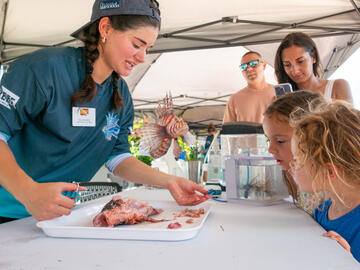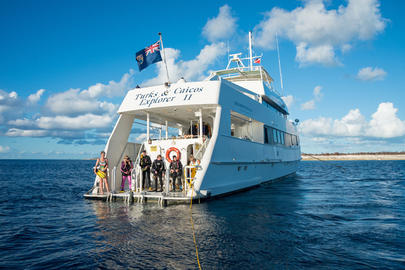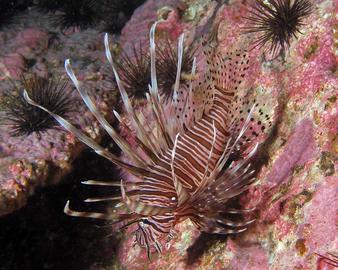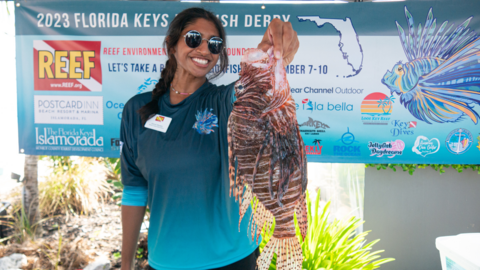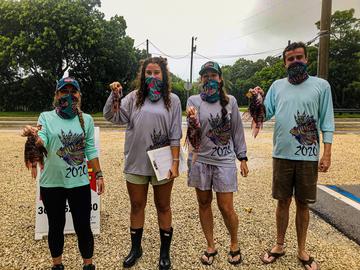Current search
Search found 426 items
- INVASIVE
KEY LARGO, FLA. – Reef Environmental Education Foundation (REEF) is excited to announce the 16th Annual Florida Keys Lionfish Derby & Arts Festival, scheduled for April 24-27, 2025. This event uniquely combines invasive lionfish removal with vibrant local arts and conservation efforts, aiming to engage the community in ocean conservation through interactive and educational activities.
Event Schedule
Although we are just one month into the year, our 2019 Field Survey Trips are filling up fast! Because of the great response, we have decided to add two new trips to the 2019 schedule: an invasive lionfish-focused liveaboard trip to Belize this June, and a fish survey liveaboard trip in December, to the Turks and Caicos Islands.
Reef Environmental Education Foundation is excited to announce an opportunity to partner with classroom teachers for the 2023-2024 school year. Thanks to the Coastal Partnership Initiative (CPI) grant from the Florida Department of Environmental Protection, we can offer your class FREE REEF Virtual Field Trips, Colorful Fish Identification Cards for your students, and marine life curriculum for you to use as a classroom resource.
Third Annual Palm Beach County Lionfish Derby set for August 17
Teams will compete for over $3,500 for removing the invasive species
By Keri Kenning, REEF Communications Manager
REEF Director of Special Projects, Lad Akins, has co-authored several recent scientific publications on the invasive lionfish in the western Atlantic, including:
Mark your calendars for the 15th annual Florida Keys Lionfish Derby & Festival on August 15-18! A Lionfish Derby is a competition where teams of divers and snorkelers compete to collect as many invasive lionfish as possible. REEF Lionfish Derbies educate the public about invasive species, gather important scientific information on lionfish populations, and promote a consumer market for lionfish.
As part of REEF's continuing work on non-native species, particulary the invasive Indo-Pacific lionfish, a multi-agency technical workshop was hosted by REEF, NOAA and the USGS to develop early detection and rapid response plans for Southeast Florida. Over 20 different state, federal and organizational offices were represented at the 2-day workshop, which was held June 18th and 19th in Marathon, Florida.
KEY LARGO, FLA. – Reef Environmental Education Foundation (REEF) will kick off the 2021 Lionfish Derby Series with a socially distant Earth Day Lionfish Derby on Friday, April 23 through Sunday, April 25.
Fifth Annual Green Turtle Cay Lionfish Derby set for June 22
Teams will win over $5,000 in cash prizes for removing the invasive species
By Keri Kenning, REEF Communications and Affiliate Program Manager

